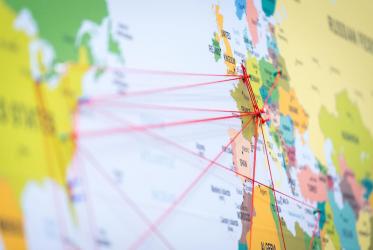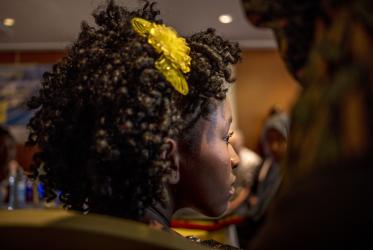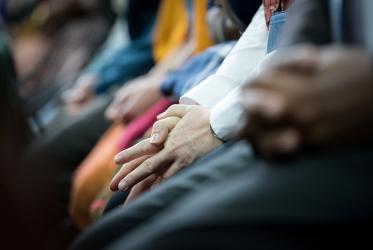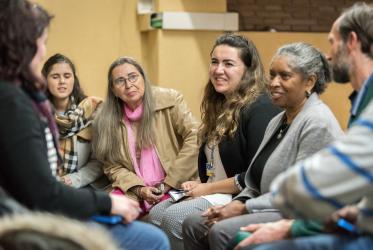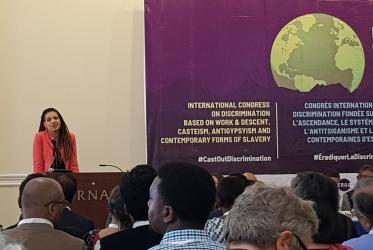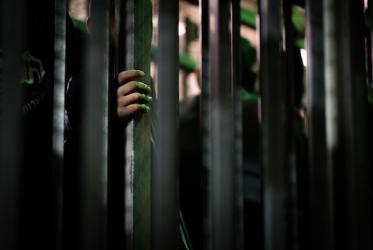Displaying 101 - 120 of 323
South Sudan Church leaders welcome new cabinet
15 March 2020
Freedom of religion rooted in justice
06 March 2020
WCC reiterates standpoints against antisemitism
20 January 2020
On International Human Rights Day, WCC’s work is ever-present
10 December 2019
Dialogue explores role of religions in settling conflicts
21 November 2019
Dr Saïd Ailabouni: God is on the side of rejected, oppressed, occupied
12 September 2019
WCC represented at G20 Interfaith forum in Tokyo
13 June 2019
